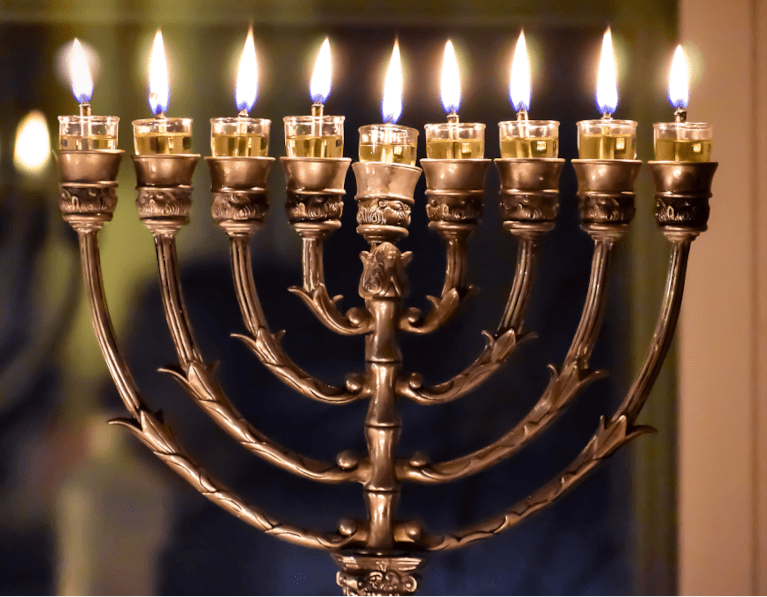Straight Up



This Monday, I began, a two-part series of classes called “The Mystery of Jewish History.” I came up with the title years ago when writing a book on the topic, and Jewish history forces me to return to it every now and then.
Obviously, the spelling of “history” is based on the word “mystery.” Less obvious is the word’s connection to another: hysterical. That is no coincidence since sometimes Jewish history is hysterical, but most of the time it just results in hysterics. We’re all our own worst enemy at times, but the Jewish People take the cake on that one.
As the “joke” goes, the most effective way to destroy the Jewish People, “ G”F, is to leave them alone. Attack them, and we tend to put rivalry aside and band together. Leave us in peace, and we’ll find ways to destroy it. It would be comical if it weren’t so tragic—and dangerous.
To be fair, it’s not all our fault. From the beginning, the Erev Rav (Mixed Multitude) have been key instigators. The worst. And though they kind of disappeared by the end of the Chumash, not mentioned once throughout Navi of Kesuvim, the Zohar and GR”A explicitly state that the Erev Rav will be alive, well, and damaging at the End of Days. And being rich, powerfully, and politically connected, they will be in key leadership positions to do their worst.
Here’s the tricky part. In the desert, the Erev Rav was a very distinct group you could point out and isolate. In this week’s parsha they are referred to as the “Asafsuf” (Bamidbar 11:4). Today, they are integrated into the nation, which means that though we may notice their antics, we more than likely will not consider them Erev Rav, which makes them even more dangerous.
Some of their distinguishing signs, according to the GR”A, are things that we may notice, dislike, but also take for granted. It is quite commonplace today for Jews of means to hold back money from the Torah world on principle—their principle. It is, quite unfortunately, acceptable to many to disparage talmidei chachamim. And how many have little problem turning their backs on the poor, especially since there are so many?
You could sit next to a member of the Erev Rav in shul, or he might even be sitting up on the bimah. You might do business with one, overlooking their religious tendencies because they make a good business partner. They might be a politician, or lead people in some other capacity. Scariest of all, they might even be YOU! You can have a lot of nice qualities and still be Erev Rav in a particular area of life. You can be sure that when Moshiach finally comes and makes the final separation, there will be some surprises, good ones and bad ones.
Part of the problem is the world in general. It’s become very chutzpadik, as the Mishnah predicted it would, and that spills over into the religious world as well. The world has become very liberal, and though that sounds good on paper, it always backfires on mankind. If the liberalism stemmed from a selfless desire to make life better for the less fortunate, it might be a good thing.
But most of it doesn’t. Tear back the layers of apparent self-righteousness and you will find personal issues driving most liberals, what the Torah calls b’leiv echad k’ish echad. That’s when people band together for what seems a common cause but which is really a common desire to fulfill personal mandates.
The opposite was what the Jewish People experienced at Har Sinai at the giving of Torah. They reached the level of k’ish echad b’leiv echad, like a single person with a single heart because the awe of the moment cancelled out all selfish tendencies. This allowed them to unify around a common truth, if only for a short time because the Erev Rav chiseled away at it.
That is the rallying cry of the Erev Rav. They prey on people’s selfishness and insecurities, promising greater personal fulfillment and self-confidence. And anyone who stands in their way becomes their target for derision and destruction. One of the great ironies of life is how something so user-friendly sounding like liberalism can actually result in just the opposite for those who have a different approach to life.
In a sense, this is what the Menorah teaches us. Each of the six branches of the Menorah burned towards the middle of the branch, which pointed Heavenward. The six side branches represent the individuals that make up society, all of which may march to the beat of their own drums, but whom to look to for a leader to guide them.
That’s fine, as long as the leader’s heart is directed Heavenward. As long as the one calling the shots has fear of God and follows the Torah, then everything will work out for the best. If not, well, we’re already seeing the disastrous effects of this already and have for thousands of years now.
Good Shabbos,
Pinchas Winston
thirtysix.org / shaarnunproductions.org
Go to Torah.org
Date: June 12, 2025

![Spiritually Inflated Egos[1]](https://i3.wp.com/torah.org/wp-content/uploads/2021/02/hearts-love-balloons-sky.jpg?ssl=1)
